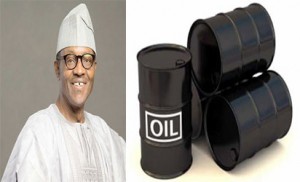
The talks for a possible oil freeze again ended in a deadlock with infighting between two rival Middle East oil producing giants and adversaries, Saudi Arabia and Iran.The 18 oil producing that gathered to stabilize output were from OPEC and non-OPEC members that contribute three quarters of total world production.
The April 17 disagreement in the Qatari capital of Doha rekindled fears that the two major producers went back to issues of market shares which drove prices to a 13-year lowof $27 per barrel in Januaryafter the December 2015 Vienna meeting ended without adecision on production cap. But expert prediction had been that it was early for the Saudis to react to production cut;scenarios associated with gluts may continue with lower oil prices.Last year the Saudi’s conditionality was that unless co-leading producer and oil convenient soul mate, Russia was in the production cut deal OPEC should count them out. In December Saudi Arabia offered crude oil at a lower price to two most important markets, the United States and Asia, two days before the 168th meeting.
They lowered official selling price for all crude grades to the United States, a condition Bob Yawger of Mizuho Securities considered a slap in the face of OPEC. It was disappointing for the non-OPEC producers Russia and Mexico who have heeded to pressures fornegotiations on crude oil market stability deal.The Russian Energy Minister, Alexander Novak called the Saudi demand as unreasonable as he thought coming to Doha was to sign the oil deal rather than debating it. OPECnon-Gulf declining members Nigeria, Venezuela, Algeria, Angola and Ecuador with economies in cleft stickwho courted the competing non-OPEC members also expressed disenchantment in the no deal communiqué that came after five hours of deliberations.
Oil price instability which started in the summer of 2014 made OPEC Secretary General Abdullah El-Badri’s shuttle to Moscow last year todiscuss with Russian Energy Minister on long term prospects in crude oil market. In a joint statement El-Badri and Novak agreed that despite uncertainties then, there were signs of a more balanced market in 2016. The OPEC initiativewas expected toprovide the much desired oil market stability in the longer-term, a prerequisite for the continuity of timely and adequate investments.Hopes alsoglimmered after President Buhari and other prominent OPEC leaders had diplomatic descants before the Qatari talks for production cuts.
Butthe Saudis exhibited another unexpected actionin herinsistence of a deal only if Iran was involved in the talks.Iran which was absent at the meeting pledged support towards market restoration and stability only when she achieves pre-sanctions level of crude oil production. The feud was akin to the early December 2015 biannual OPEC meeting when members were roiled with bizarre market share control mechanism. The oil cartelin Decemberwas in apitched battle between its high cost producers whose economies were devastated by low crude oil prices and prosperous producers some of who had oil deals with perceived allies. Veteran Saudi Oil Minister, Mr. Ali al- Naimi at the Doha meet was of the view that Saudi Arabia would focus on meeting customer demand for crude rather than trying to influence global oil prices for now.
Industry watchers believed that Saudis had crude delivery commitments for up to June 2016. Saudi Arabia’s inexpensive output gives it a major competitive advantage over other producers around the world. The kingdom feeds its refineries in Saudi Arabia, Asia and the United States while trying to maintain its share of global crude trade. Iran through her oil minister, Bijan Zangeneh, in the December meeting, refused to entertain a production cap deal until she gets a clean bill of healthfrom nuclear sanctions of the west. Trying to reclaim lost ground, Iran entered a sales deal with China’s Sinopec for 505,000 barrels of crude per day, and intended to ramp up supplies for up to 1 million barrels per day. Iran, a petroleum dysfunctional country until January 2016 when she was left off the hook by the five Permanent Security Council members plus Germany (P-5+1) over nuclear power acquisition at the Doha talks insisted on 2011 pre-sanctions oil market share to join the group on oil freeze. Pre-sanctions levels for Iran were near 4million barrels per day (mmbpd) and supply level of 2.2 mmbpd which she hopes to meet by June 20, 2016. Her April crude exports stood at 1.75 mmbpd. The scenarios implied that a freeze may not be achieved until the OPEC’s scheduled meeting of June 2, 2016 at the Geneva headquarters.
The wranglewith Saudi political and military rival Iran, and brought to the forereminisces their proxy wars in Syria and Yemen. The danger signal of battering oil prices is volatility in the crude oil market. OPEC’s decision to maintain 30 million outputs levels, and hardly adhered to for more than a year now contributed to highest levels of oil in Western Europe.Associated oil gluts may continue to lower oil prices, reduce revenues and occasion tighter budgets for liquid fossil fuels dependent economies.
OPEC members’ share of this confusion is desperation and risk of economic instability. Survivals of some countries threatened by depressing oil prices are devaluing currencies.
A cut now may not have significant impact on prices since the level of oil in storage including shale is high. The GCC members Saudi Arabia, UAE, Qatar and Kuwait that wield power in OPEC are investing heavily in the downstream. The de-facto OPEC leader Saudi Arabia which is the swing crude producer is working assiduously to become a net downstream products exporter by 2025. Saudis for now are more concerned with market share rather than production cut for market stability. For Nigeria petroleum resources managers it meant they should toe the line of Gulf Cooperation Council members in OPEC to steer Nigeria to safety shores.Acritical option for Nigeria is to invest in exploration and productionto increase reserves as well as investments in downstream activities, to weather the storm.
END

Be the first to comment